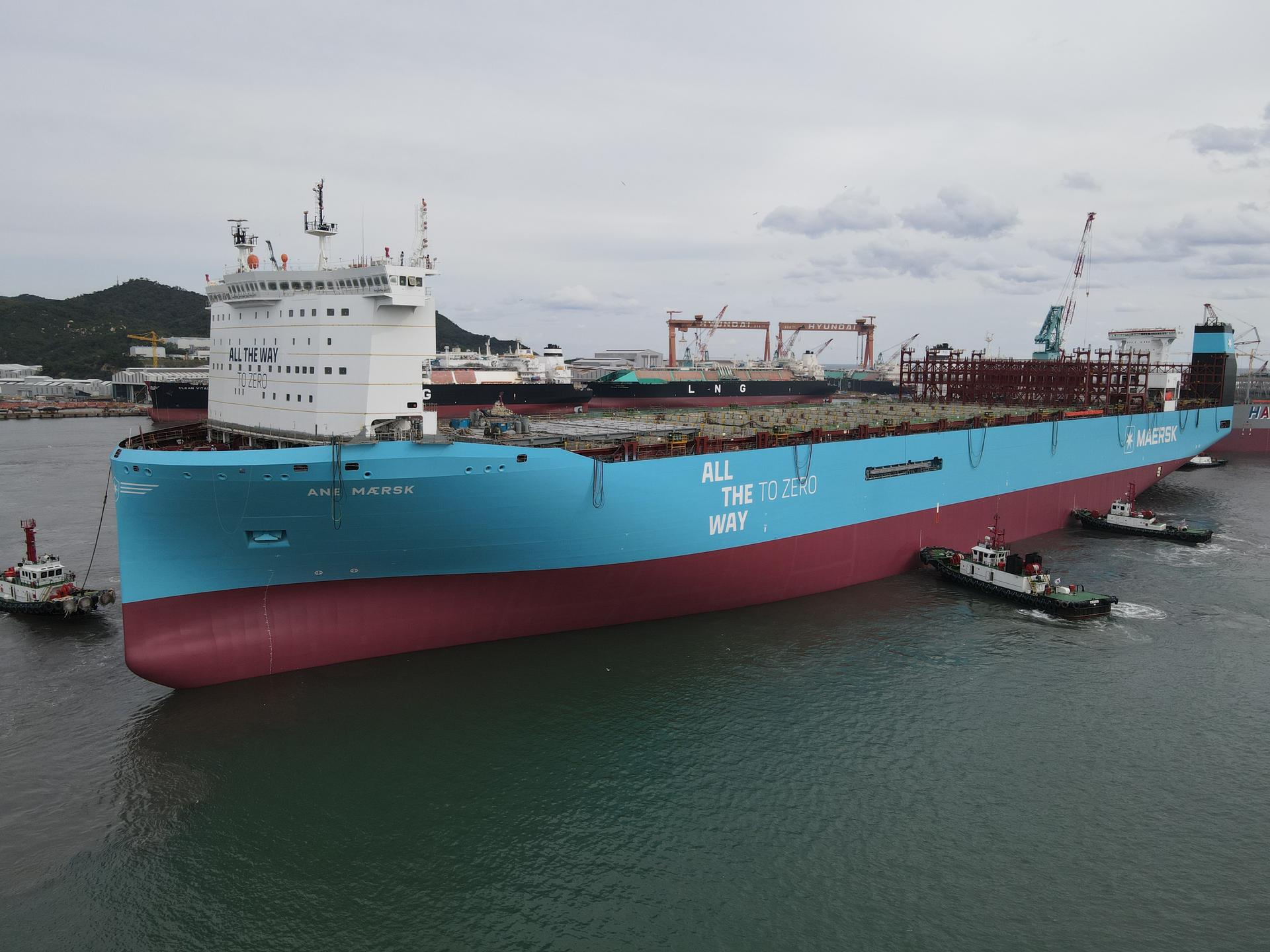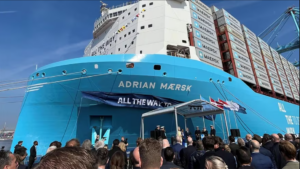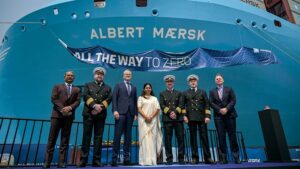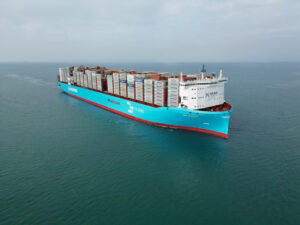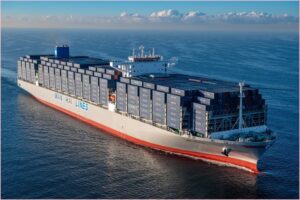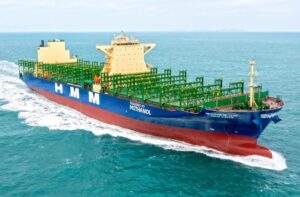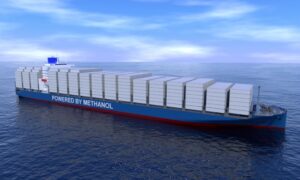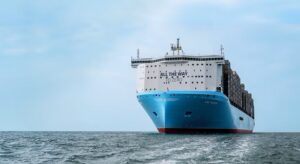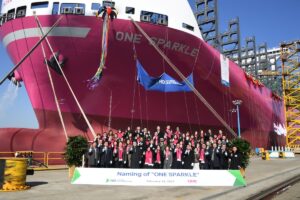Maersk names world’s 1st large methanol-powered containership
History was made at HD Hyundai Heavy Industries (HD HHI) in Ulsan, South Korea as the world’s first large methanol-enabled container vessel was named.
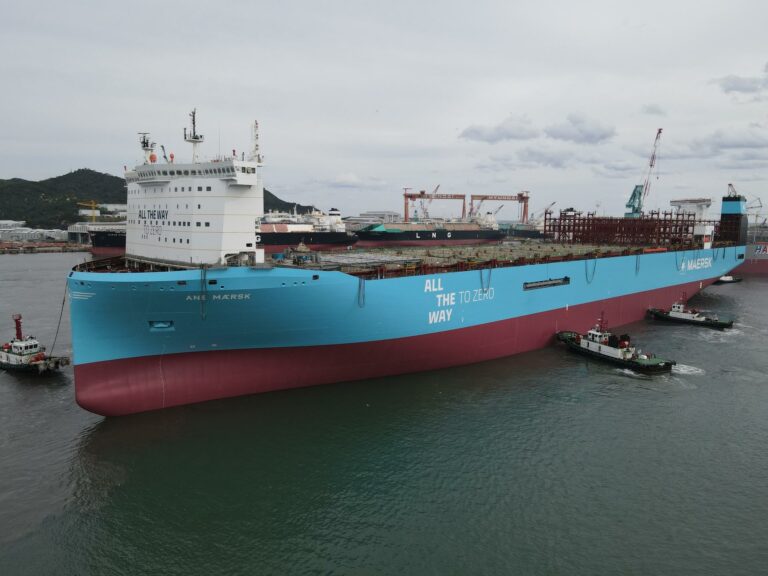
The 16,000 TEU containership was named Ane Maersk after Ane Mærsk Mc-Kinney Uggla, the Chair of the A.P. Moller Foundation and A.P. Moller Holding. Ane’s eldest granddaughter served as godmother and christened the vessel by breaking a champagne bottle over the bow.
Ane Maersk is the first of Maersk’s 18 large methanol-enabled vessels that will be delivered between 2024 and 2025. It is the world’s second methanol-enabled container vessel.
Related Article
Ship specifications:
- 350 meters long, 53.3 meters wide
- 16,592 TEU (twenty-foot-equivalent).
- The engine, provided by MAN Energy Solutions, is a dual-fuel type, meaning it can run on methanol as well as traditional marine fuels. The same applies to the auxiliary engines.
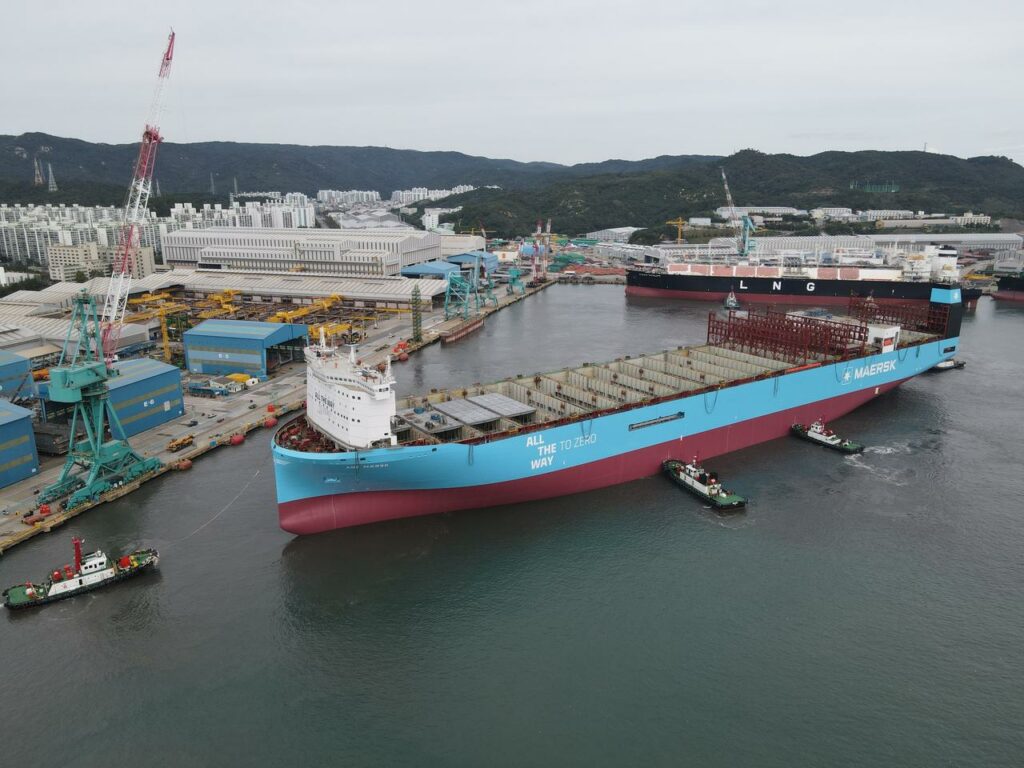
Maersk said that the vessels in this new series have an industry-first innovative design with the bridge and accommodation placed at the very front of the vessel, which ensures fuel-efficient operations.
“This series of vessels will have a transformative impact on our ambition to progress on our industry-leading climate ambitions. It is a visual and operational proof of our commitment to a more sustainable industry. With “Ane Mærsk” and her sister vessels we are expanding our offer to the growing number of businesses aiming to reduce emissions from their supply chains,” said Vincent Clerc, Chief Executive Officer of A.P. Moller-Maersk.
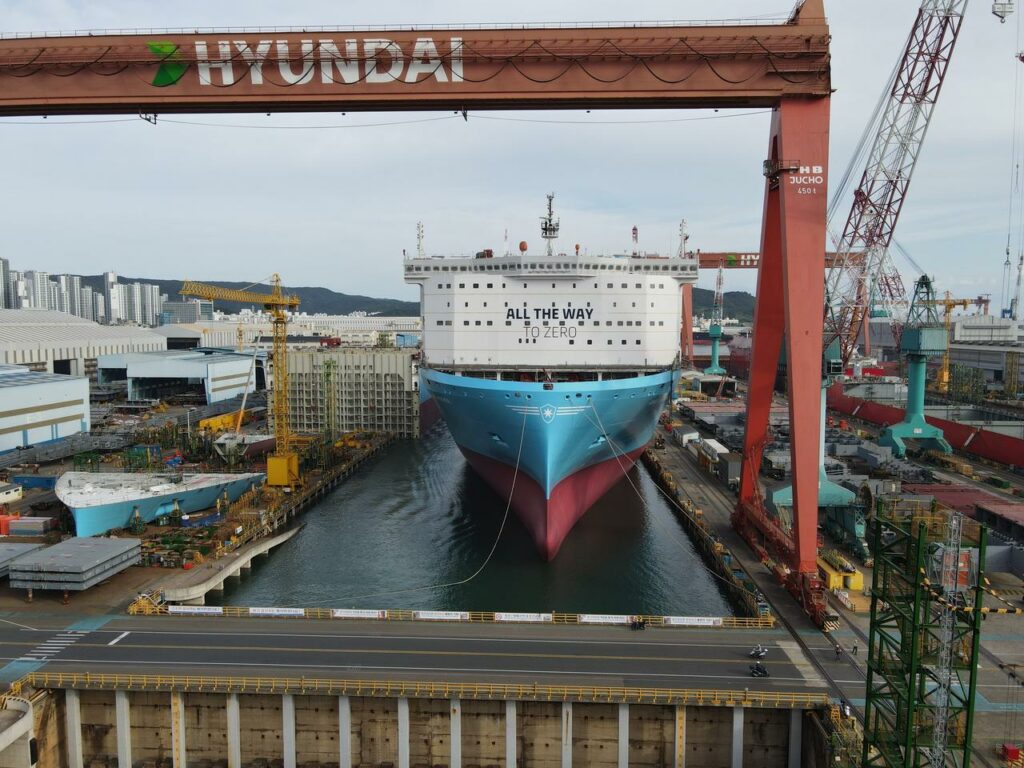
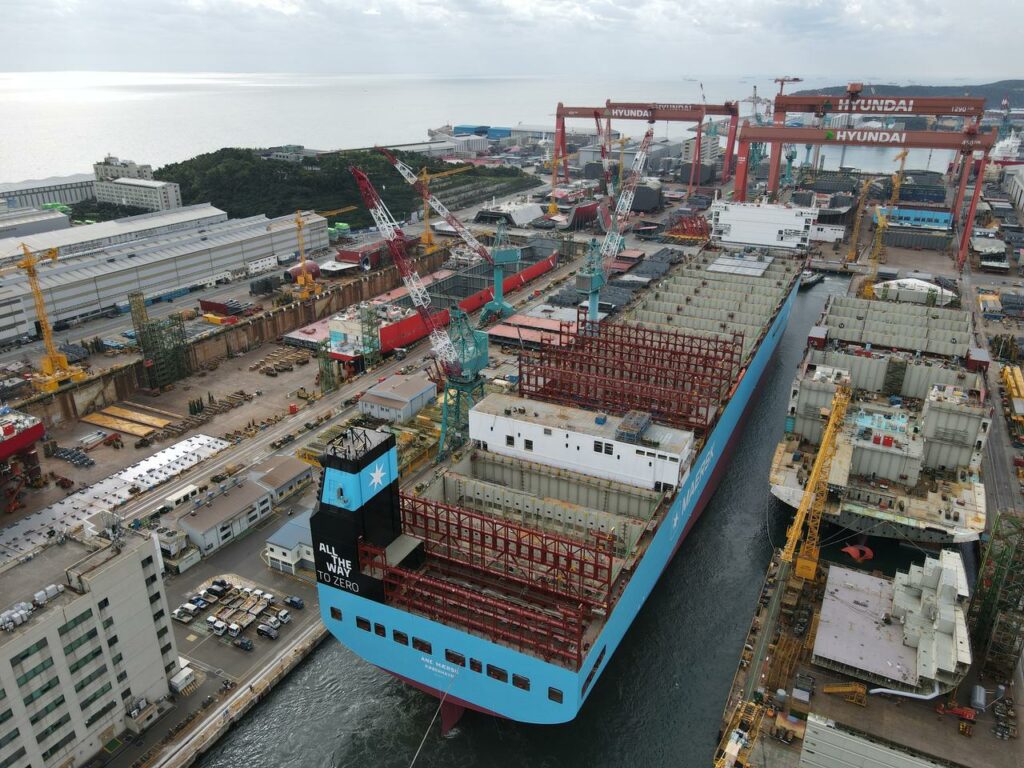
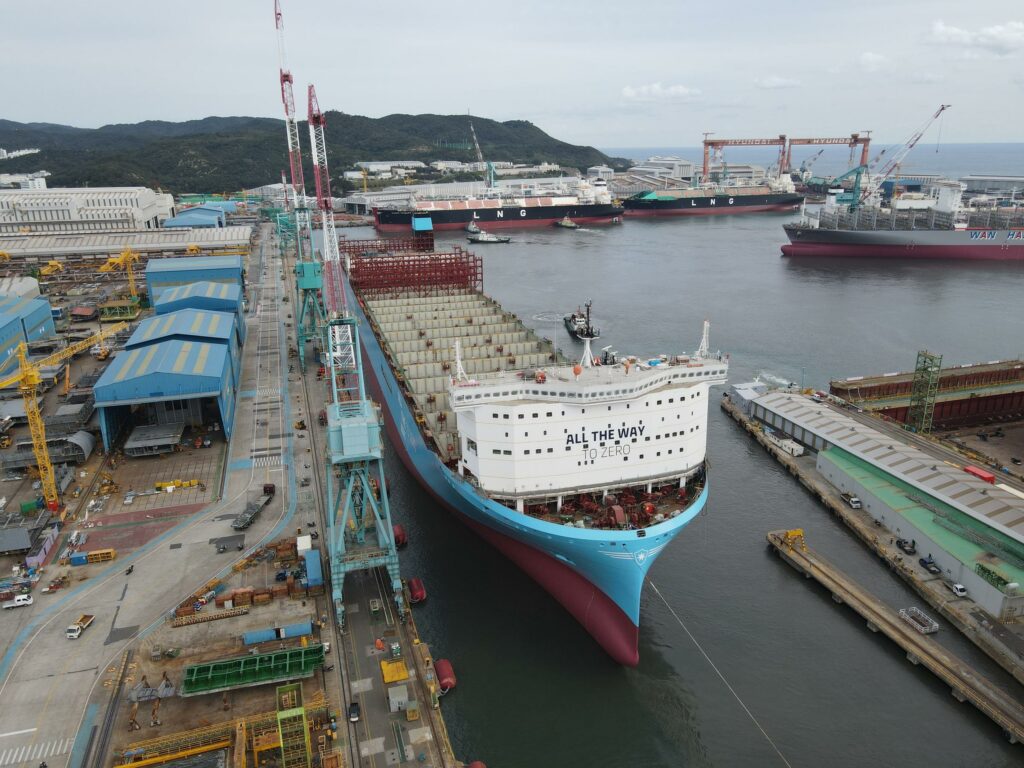
The ship is scheduled to enter into service at the beginning of February. It will operate on the AE7 string connecting Asia and Europe.
As was the case for Laura Maersk, the company has secured green methanol for Ane Maersk’s maiden voyage.
Maersk defines “green fuels” as fuels with low to very low GHG emissions over their life cycle compared to fossil fuels. In percentage terms, this means from 65% to 95% life cycle GHG reductions.
By the end of this decade, Maersk anticipates that 25 of their vessels will be sailing on green methanol, saving a remarkable 2.75 million tons of CO2 emissions annually. Ane Maersk will be followed by the delivery of 23 large ocean-going vessels of 9,000-17,200 TEU capacity, with deliveries spread between 2024 and 2027.

